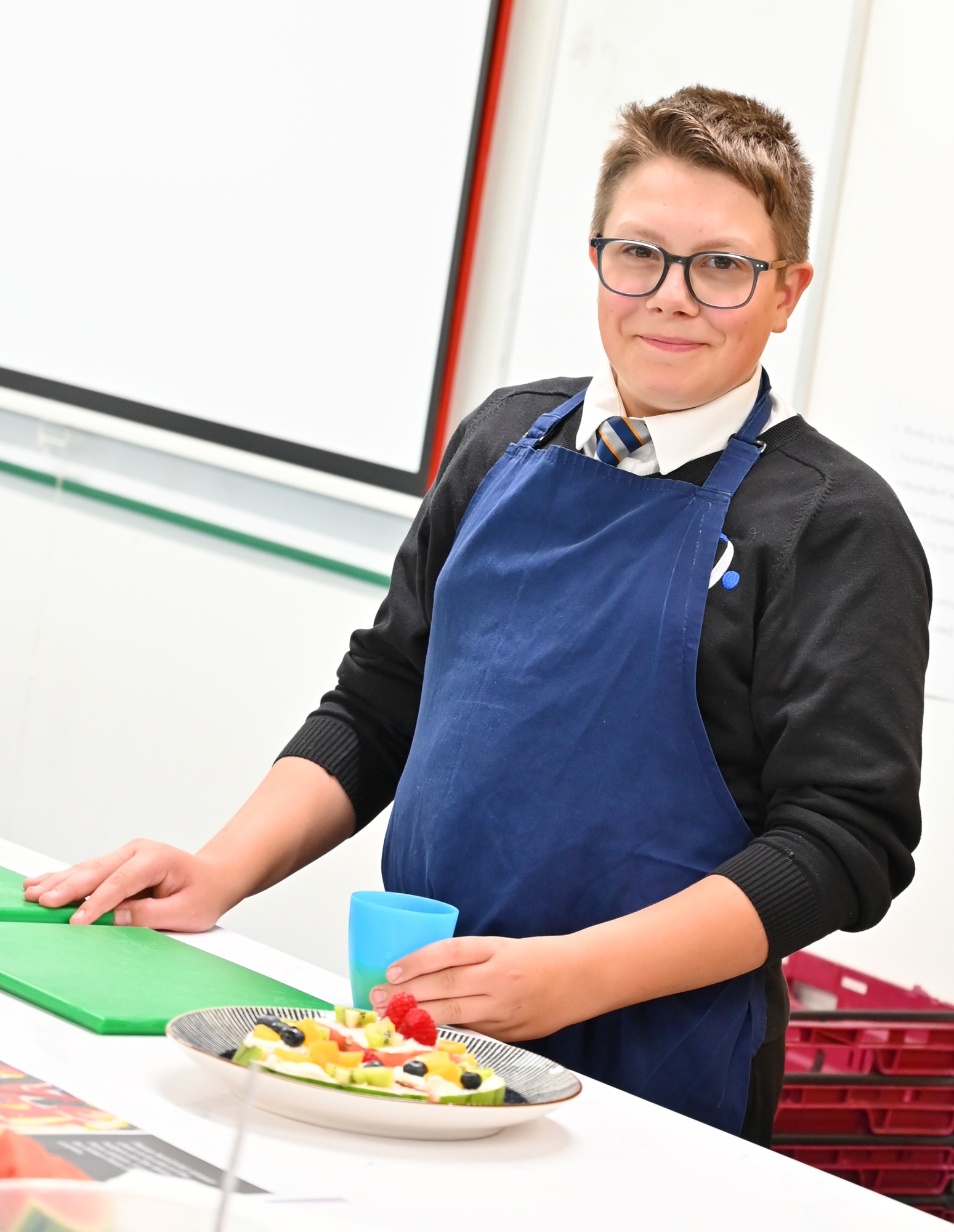Food & nutrition
Food Preparation and Nutrition allows students to explore their creativity using a range of materials and techniques. Students are taught how to become confident in a range of cooking processes such as selecting and preparing ingredients, using utensils and electrical equipment and how to adapt recipes.

What makes us special?
Students are taught the importance of healthy eating and the principles of nutrition, health safety and hygiene and the function of ingredients. Making a range of predominately savoury dishes focussed around family meals, students are encouraged to explore flavours and textures whilst learning a variety of cooking techniques.
Assessment
Key Stage 3:
Students complete an End of Cycle Assessment covering key topics and practical skills learned during the term. Practical cooking tasks are also assessed to develop confidence and technique.
GCSE Food Preparation and Nutrition:
Assessment includes two Non-Exam Assessments (NEAs) and one written exam:
- NEA 1: Food science investigation
- NEA 2: Practical food preparation task
- Written exam: Covers food, nutrition, and food science (50% of final grade)
In Year 10, students complete a Mid-Cycle Assessment, End of Cycle Assessment, and a practical assessment to prepare for the NEAs and final exam in Year 11.
Progression & careers
Studying Food and Nutrition beyond Key Stage 4 opens up a wide range of exciting opportunities. After completing GCSE, students can progress to:
- A-Level subjects such as Food Science and Nutrition, Biology, or Health and Social Care
- Vocational courses in Hospitality, Catering, or Nutrition
- Apprenticeships in the food industry, hospitality, or health sectors
This subject provides a strong foundation for careers in:
- Dietetics and Nutrition
- Food Science and Product Development
- Catering and Hospitality
- Sports Nutrition
- Health Promotion
- Environmental Health
- Teaching and Education
Food and Nutrition develops valuable life skills, scientific understanding, and practical knowledge — all highly regarded in further education and the workplace.
Curriculum Map
“Real food doesn’t have ingredients. Real food is ingredients.”
Jamie Oliver “
